#I thought it was really interesting!! some poetic and experimental writing (as you’d expect with the subject matter)
Explore tagged Tumblr posts
Text
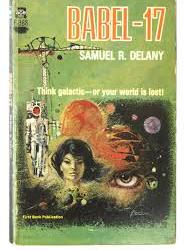

2024 reads / storygraph
Babel-17
sci-fi set in a future in an intergalactic war facing unknown beings only known as ‘invaders’
when a new code from the enemy is discovered, a poet/linguist/cryptographer is asked to try crack it - but quickly realises it’s a language
she assembles a crew to travel to the war yards to study the language, and discovers that learning it changes the way people think and interact with others
explores linguistic relativity
queer and polyamorous characters
#babel-17#aroaessidhe 2024 reads#hi mar i finally read this#I thought it was really interesting!! some poetic and experimental writing (as you’d expect with the subject matter)#really interesting worldbuilding elements with some unique cultures; all sorts of body modification#and casual queerness and polyamory. fascinating main character.#a fun spaceship crew of interesting and unique characters though I didn’t feel like I had enough time to get to know most of them tbh.#I feel like I was just really getting into things when I got to the end! I wish there was more!!#Though I do appreciate how succinct the main plot was. it has a specific point and goal.#I love the concept of languages changing the way you think and interact with the world taken to extreme levels in a sci-fi context.#(like obviously irl the theory has its issues; and i think there were some inaccurate examples in here; but yknow)#there’s definitely a few things that didn’t age great but overall. very interesting definitely glad i read it!!
22 notes
·
View notes
Text
Best Films of 2018: Honorable Mentions
The time, once again, has come. The Oscars nominations are out there, and they’re ... puzzling ... But anyone interested in an alternate take can look no further.
The cinema of 2018 offered too many notable treasures to whittle down to a simple list of ten, so before we get into the meat of my countdown, here is an alphabetical list of ten films that just missed out on making my list, but are essential viewing for anyone looking to take in the best that 2018 had to offer.
Enjoy!
Blindspotting (dir. Carlos López Estrada)

I’m still waiting for the moment when the world collectively discovers the thing at which Daveed Diggs is not amazing. He had already garnered acclaim as a part of the experimental hip-hop group clipping. before reaching a wider audience and netting himself Grammy and Tony Awards for his role in the paradigm-altering musical, Hamilton. To that already distinguished list, we can now add co-writing and co-starring in one of 2018’s most original films. Blindspotting, set in Digg’s hometown of Oakland, CA, is a searing take on gentrification, racism, and police brutality that show off a deep understanding of the myriad political problems in the rapidly-changing Bay Area, while displaying an equally deft touch with the characters who find their lives irreparably damaged as a direct or indirect result. It’s impressive work from Diggs and co-writer/co-star Rafael Casal that first-time director Carlos Lopez Estrada brings to life with singular vision. Something tells me we’ll continue to see more of everyone involved, but Diggs is undoubtedly headed for greatness.
The Death of Stalin (dir. Armando Iannucci)
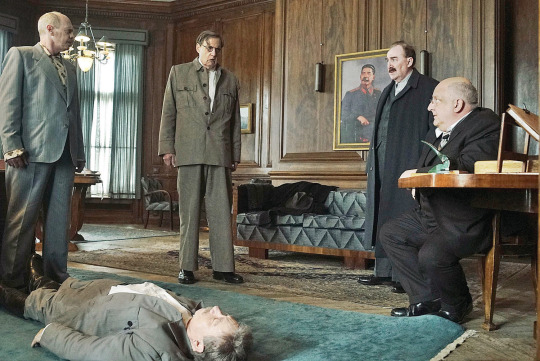
You’d be forgiven if you thought the creator/director of Veep, The Thick of It, and In The Loop had already mined politics’ deepest, darkest depths for the pitch-blackest comedy that one could possibly generate from the toxic combination of bureaucratic incompetence and egotistical narcissism. However, as The Death of Stalin shows with brutal precision, you would be wrong. The Death of Stalin is at times so bleak its difficult to even describe as a comedy without a bit of a cringe on your face, but it revels brilliantly in the theater of the absurd and probes ruthlessly at the ruling class with chilling contemporary resonance. And that’s all without mentioning that it features one of the best ensemble performances of the year. In a time when its easy to despair how much our everyday political reality has started to resemble a particularly discomfiting episode of Veep, Iannucci makes a triumphant return with an even more discomfiting message - never forget, things can always get much, much worse.
Hereditary (dir. Ari Aster)
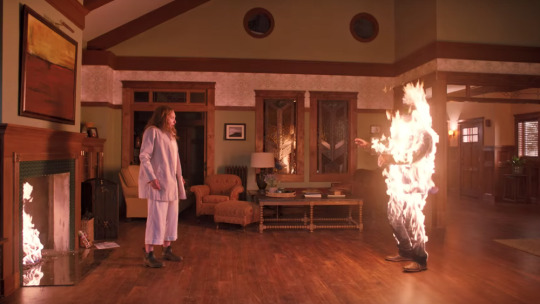
Another year, another Sundance horror breakout. Even if it doesn’t quite match up with some of its more distinguished predecessors (I wouldn’t quite put it at the level of It Follows, The Babadook, or The Witch) Hereditary is clearly the year’s best horror film, featuring a handful of sequences sure to push you to the edge of your seat, and then keep you up at night. The perennially under-appreciated Toni Collette delivers a performance of such vast emotional range that it deserves mention among the absolute best performances of the year – which, of course, meant that it was doomed to be ignored by the Oscars. Nevertheless, any fans of the genre should stop what they’re doing (including, presumably, reading this list) and watch this film immediately. You won’t be sorry.
If Beale Street Could Talk (dir. Barry Jenkins)
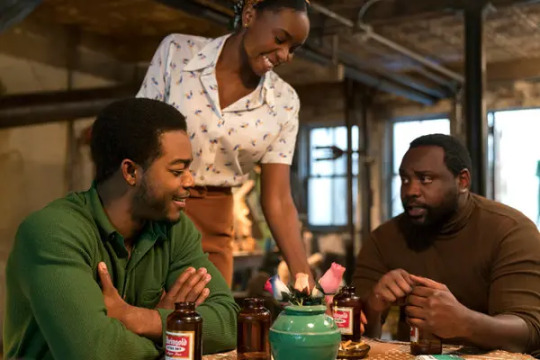
A pairing like Barry Jenkins and James Baldwin makes so much sense, and has such immense creative potential, that it’s generally something that could exist only in cinephile dreams. It simply makes *too* much sense. Yet, here we are, and Jenkins’ follow-up to the critically-revered Moonlight, an adaptation of one of Baldwin’s lesser-known novels, If Beale Street Could Talk, is very much real. Does it measure up to the immense expectations thrust upon it, due in no small part to Moonlight’s rapturous reception and the much-hyped pairing of Jenkins and Baldwin? In some important ways, no. Is Jenkins’ script at times overly-reverent of its source material? In some important ways, yes. But when Jenkins filters Baldwin’s story of the redeeming power of love in the face of oppression through his own unique cinematic voice, the results are breathtaking. Jenkins remains one of cinema’s greatest emerging artists.
Mission: Impossible – Fallout (dir. Christopher McQuarrie)
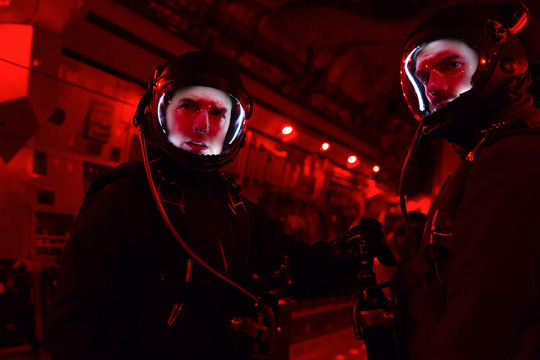
At the very least, this latest installment in the M:I franchise was the most balls-to-the-wall fun I had in a theater this entire year, hurtling at a breakneck pace from one jaw-dropping set piece to the next with one of the world’s biggest stars carrying the screen from the first frame to the last. But at most, you could call it one of the decade’s best action films, with some of the most breathtaking stunt work ever put to film with an absolutely singular star who continues to push his penchant for cheating death and tempting fate for our entertainment to daring new heights. The truth probably lies somewhere between the two extremes, but either way, the Cruise’s latest ride as Ethan Hunt is undeniably one of the most thrilling yet.
Private Life (dir. Tamara Jenkins)

With 11 years having passed since her Oscar-nominated feature debut, The Savages, hit the silver screen, news that Netflix was financing and developing a new film from Tamara Jenkins was met with nearly unbridled optimism. More than delivering on that promise, Jenkins once again delivered a film that delves deeply into all-too-common but dramatically under-explored modern adult experiences. While The Savages followed two adult siblings dealing with the mental decline of their elderly parent, Private Life details a couple in their 40s going through fertility treatments. Like her debut, Private Life uses this trying, even destabilizing experience to explore the ways in which our long-established adult lives can be uprooted as much by our own choices as by external, unforeseeable events. With two sterling performances from Kathryn Hahn and Paul Giamatti at its center, Private Life is rife with incisive observations about overlooked truths of aging together. It’s beautiful work, and undoubtedly one of Netflix’s best “original” offerings.
The Rider (dir. Chloe Zhao)

Using a cast of untrained actors to spin a poetic tale lost opportunity by way of the American rodeo, director Chloe Zhao’s sophomore feature has keyed her as a rising master of cinematic realism. The film follows the struggles of a former rising rodeo star dealing with the fallout of a traumatic head injury suffered during a bronc riding competition, and mirrors the real-life experiences of its star, Brady Jandeau. who Zhao befriended while shooting her debut feature, Songs My Brothers Taught Me. Drawing out brilliant performances and setting them against the perma-golden picturesque of the Badlands, The Rider is a testament to what truly independent cinema is capable of and is sure to springboard Zhao to greater heights.
Spider-Man: Into the Spiderverse (dir. Bob Persichetti, Peter Ramsey, Rodney Rothman)
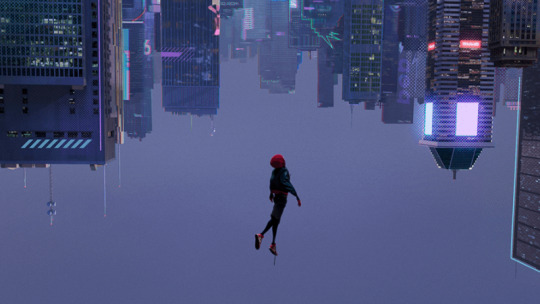
The most unexpected triumph of the year, Spider-Man: Into the Spiderverse is not just a high watermark in the Spider-Man film series, it is almost certainly the best film to ever come out of Marvel Studios, and possibly the greatest superhero film since The Dark Knight. With an airtight script that spans several universes (literally) with ease, and featuring some of the most glorious and inventive animation ever to grace the big screen, Into the Spiderverse is a rare and perfect marriage between the words on the page and the visual language employed on screen. It a testament to what’s possible when talented artists with an original vision take big risks - it’s a breath of fresh air.
A Star is Born (dir. Bradley Cooper)
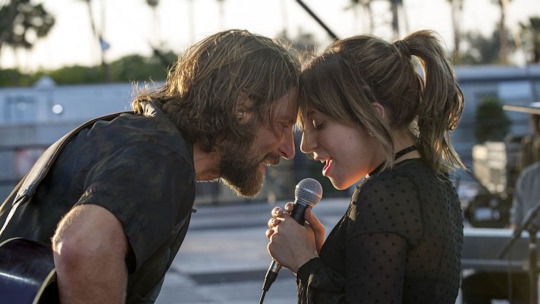
Even with an improbably underwhelming Oscar campaign sputtering its way to the finish line, it’s hard not to peg A Star is Born as the year’s most-talked about film. Bradley Cooper brought his gestating passion project to life with scope and vision rarely seen from a first-time director and Lady Gaga turns in an absolutely electric performance that elevates the film whenever she’s on screen. From the spine-tingling live concert scenes to the beautiful on-screen chemistry between Cooper and Gaga, there’s an awful lot to love about this latest iteration of this long-tenured Hollywood classic. Sure, there’s also plenty to nitpick at - obviously more than enough to fuel a backlash against the once-assumed Oscar frontrunner - but when this film is firing on all cylinders, it’s right up there with the greatest cinema of 2018. Cooper is officially a filmmaker to watch, and A Star Is Born looks every bit like a directorial debut that will stand the test of time.
You Were Never Really Here (dir. Lynne Ramsey)

One of the year’s most boldly-directed films, Lynne Ramsey’s latest is a lean thriller that goes for your throat but takes up permanent residence in your gut. Ramsey and star Joaquin Phoenix (delivering yet another show-stopping performance) bury you deep inside the mind of killer for hire, traumatized by his abusive childhood and haunted by his military past, as he embarks on a job to rescue a young girl from sex traffickers. If this premise seems familiar, believe me, the execution is anything but. Ramsey’s direction is unerringly brilliant, elevating You Were Never Really Here well beyond it’s pulpy origins to bracing, almost hallucinogenic heights. Oh, and did I mention it boasts one of Jonny Greenwood’s most adventurous scores to date? If that’s not enough to get it in your Amazon Prime queue (hint hint), then I don’t know what to tell you ...
#Best Films of the Year#best movies of the year#film#cinema#you were never really here#lynne ramsay#joaquin phoenix#a star is born#bradley cooper#lady gaga#spider man into the spider verse#the rider#chloe zhao#private life#tamara jenkins#paul giamatti#kathryn hahn#mission impossible fallout#tom cruise#christopher mcquarrie#if beale street could talk#barry jenkins#brian tyree henry#regina king#hereditary#ari aster#toni collette#the death of stalin#armando iannucci#blindspotting
20 notes
·
View notes
Text
Interview with Conor Walsh, Author of Little Glass Men
Back in July we interviewed Conor Walsh about his book Little Glass Men. We are excited to be working with him in our upcoming bookstore!
What do you want reader to take away from Little Glass Men? The hope is that the story would spawn more interest in, if not World War I itself, then at least the stories that spawned from it. I find the era fascinating, but feel it's been highly neglected by most forms of media, for the most part. World War I doesn't have the "allure" that the second World War does - that of a distinct good-and-evil struggle, though of course it was more complex than that. The first World War was a meaningless war, for the most part, and one that everyone lost. So the men who fought and died in it can't even say "Well, at least I beat the bad guys." It's always had a sort of poetic merit to me - a war with no point, but one that men still fought and died in. History doesn't really give them a fair shake. In Little Glass Men you explore a diverse group of characters. Was there a particular perspective that was most difficult to explore? What made you choose these particular characters to explore? Garrett's perspective was the most difficult to tackle, I'd say, mainly because I had a vision behind his character that got somewhat "lost in the shuffle". The idea behind his character is that he'd never really had a childhood or adolescence; that adulthood was forced on him, so to speak. I find him the most interesting, for what that's worth, as he's even more alone than the other people in the hospital. Racism was rampant in the era Little Glass Men takes place; he's half-black. He has no family. His only "friends" are years above his age, and all with their own score of problems. As for the cast of characters, I felt each personified a certain outlook in reference to the war and what it took. Lombardi's angry and bitter, O'Brien is secretly wistful and longs for his life before the war, Garrett is a victim of circumstance more than anyone else, Norman's unable to handle the horrors that he's seen. They've been trodden on by life and by the people close to them, and I feel that makes the way they get through each day all the more intriguing. How do they keep going? A fragment of hope on the edge of the horizon, or a deep-seeded will to survive? Do you have a favorite quote or character from your book? If I were any good at talking about myself I'd say something like "There are just so many great ones, I can't pick!" In reality I'd just like to skirt around them a bit. Avery has a few good lines when she's berating Lombardi - as she should - and I like the end of chapter six in general, though I don't know if I can go into more detail than that for fear of spoiling. As for favorite characters, there I will say it's a bit tougher to pick a favorite. I feel like the struggles of Emerson, O'Brien, and Norman are the most poignant, but I don't know that that necessarily makes them my favorite. I do like Avery, though, she's a firebrand. The sanitarium is called Saint Foresters. Is there a meaning behind it's name? To be perfectly honest I don't believe there is. I'm afraid it's just a name I liked. On Goodreads you listed Ray Bradbury, Issac Asimov, and Edward Carey as influences. How have they influenced you? Why do you find them so influential? And what are some of your favorite works that they've written? Ray Bradbury is the first hard sci-fi I read, I think. Though sci-fi's one of my favorite genres, the main reason I like him is because of his style. You can read something by Bradbury and recognize it as his by the style alone, which is a skill I hope to one day come close to. Asimov has remarkable - stamina, I guess you could call it. In my head I could see him being very methodical in the way he planned his stories out. He's an excellent storyteller - rarely do his works get caught up on unnecessary details or overly philosophical points. Moreover, I first read his stuff without actually expecting to like it, but the more I read the more I wanted to read. His stories sink their teeth into you, rather than the other way around, and putting down one of his works becomes difficult, to say the least. I'm sorry to say I've only read one book by Edward Carey - Observatory Mansions - but conversely I'm pleased to say that it's one of my favorite novels, if not my favorite hands-down. The way he writes is stylistically interesting, the characters are bizarre in a score of ways but remain interesting and sympathetic, and seemingly-strange or otherwise random points brought up always have a reason attached. A lot of writers seem to enjoy being weird to be weird, without any particular reason - it just lends itself to the style. But Carey's characters are something else. You mentioned that you could see Asimov being very methodical in the way he planned his stories out. When you write, do you tend to plan out your story or fly by the seat of your pants? It's almost always the latter. Little Glass Men wasn't planned at all when I began it, though I did start to separate and organize more as it went on. Recently I've been trying the more methodical approach, but I have yet to tell exactly how effective that's been. I definitely prefer to make it up as I go along, but I've written myself into a corner more times than I'd care to admit. So I suppose it's still a bit of a touch-and-go thing. You said scifi is one of your favorite genres. Have you written anything scifi or are you planning to? What do you enjoy about scifi? I've written some sci-fi short stories, but none recently. I've had some ideas for sci-fi books, but they've all fallen through. I suppose what I'm trying to say is that even though I am a big fan of the genre, writing it has proved a bit of a challenge. The excuse that springs to mind is that the projects I'm currently working on just happen to not be sci-fi, but in truth I think I'd need to settle for a smaller scope than a swashbuckling, galaxy-spanning space quest. Though dystopian wastelands have eluded me too. I'll write something of substance with a sci-fi genre someday, but right now my brain doesn't want to, for some reason. I'm not sure why I like the genre as much as I do. Maybe because it's so all-encompassing. Most think sci-fi and get images of spaceships and laser fights and aliens, but that's only a small snippet of the genre. Dystopian fiction is typically sci-fi, and the sub-genres (steampunk, cyberpunk) can turn already-interesting concepts on their heads. I've always felt like the genre allows a greater creative scope, not limiting writers to what has been discovered so far - or what even might actually work according to the laws of nature. I remember reading an essay by Asimov - the robots in his stories worked because of "Positrons". If I remember correctly, he said in the essay that he never explained them because he didn't need to - doing so would be long, possibly boring (though Asimov could have kept it interesting), and would prevent the reader from using his or her imagination. By never going into detail and working off suspension of disbelief, he was able to tell excellent stories about fantastic things without being bogged down by details. Is that part of the experimenting you've been doing with your writing on Deviant Art? The works I put up on Deviant Art are typically more experimental, yes. I'm mainly working there to hone my short-story writing ability. Currently I don't believe they're up to the level of quality I want, and that particular site gives me an opportunity to get feedback on what worked and what didn't from those I don't personally know. The only reason I don't use a more literature-focused site to post my stories is because I find Deviant Art's posting process a lot easier to use than that of any other site, despite its reputation for having no strong literature-focused community. Did you always want to write? What drove you to first put words on a page? I started writing when I was in eighth grade - prior to that point I'd enjoyed making things, but hadn't quite pinned it down to creative writing. I fiddled with some narrative-related stuff, but when I was super-young I was more interested in building things than making stories. Exactly how I got it into my head I couldn't quite tell you, but that year I decided I wanted to write something substantial. I brought it up to my English teacher at the time - his name was Mr. Muelmester. Everybody liked him, including me, and I wanted to see if he had any advice. And he did. "Try short stories first," was the gist of it. Smart man - if I hadn't heeded what he said I probably wouldn't have thought of writing short stories, would have tried and failed miserably to write a novel, and would have chalked it up as something I couldn't do. Possibly. Whatever the possible alternative cases, I'm glad things worked out the way they did. Speaking of advice, on Goodreads one piece of advice you offered to aspiring writers was to pay attention and that the strangest things can spawn ideas. Has anything like this happened to you? Can you give an example? Off the top of my head, it's a little tough to come up with a more recent example. Not because it doesn't happen, but because a single story can be sort-of coalesced from a very wide variety of different bits of media. You might decide you like a certain character type from a movie, book, or game - or you might decide that you'd like a character who acts exactly the opposite. To more adequately answer your question, I believe I've had a few dreams that have been clear and normal enough (rare occurrences, both of them) to be worked into stories. To give yet another example, when I was early in my writing career I saw a woman dressed in army fatigues walking through an airport by herself. Peeking out of the top of her army satchel was a stuffed teddy bear. I recall writing a story inspired by that singular interaction. Now, that was when I was very young, and I'm sure the story isn't exactly a literary masterpiece. But, even though that's probably the case, that's the kind of thing I mean. Surprise ideas popping up in unexpected places. On Deviant Art, you mentioned in a forum the troubles that come with self-marketing, especially for self-published authors. Have you found any techniques to help since May or do you have any advice to give in this area? I don't think I do at all, I'm afraid. It's a bit of a stumbling block for me. I can repeat some of what I've been told, though. Do your best to work it tactfully into conversations, get a social media presence, find a way to get people interested and keep them interested. But I'm afraid that much as I might try to give advice, it's a facet of the writing process (if you can qualify it as such) that just doesn't come naturally to me, and I have yet to find a unique strategy that works. One of the things young authors run into is the questioning of supposed lack of experience to write content that could have any real impact on or wisdom for readers. What is your response? Having the discipline to write at an early age, I believe, displays some maturity. Someone with discipline to sit down and write some five-thousand words with characters interacting and a cohesive plot must have something going for them, even if their work isn't interesting or powerful. So there's that. There's also the fact that there's a wealth of information out there, on the internet, in television and movies, and of course in other books. I actually believe that a perspective on certain scenarios that one hasn't taken part in - even ones as mundane as filing taxes or living in a city - can paint a drastically different picture than might be immediately apparent for someone regularly experiencing such tasks. Give them a fresh, non-jaded outlook. Furthermore, I'd motion to suggest that that criticism is illogical if applied automatically. To explain: I don't see a scenario where a reader could finish an entire work by anyone, and only after finishing it question how invested they were in the book. It's either interesting or it isn't. If it is engrossing or insightful in some way, and the author is young, then despite his or her lack of experience the reader has been impacted or given a new outlook. Now, I could understand part of the effect being lost because of a lack of intimate knowledge with certain subjects, but I feel there isn't much out there - in regards to writing, at least - that can't be learned through practice, research, and consumption of other media. You had such an amazing debut novel. Where are you planning to go from here? I suppose I'm still trying to get the word out there with the first book - self-marketing's a bit of a doozy, as I mentioned. I'm glad to hear the first book was decent, though. (As a side note from the interviewer's perspective, decent does not begin to describe how amazing this book is.) Currently I'm working on another novel, which should be finished at some point before the heat death of the universe. In all seriousness, I hope to have it done before the end of this year (though I have no idea how long the editing and other processes will take). The next novel's actually a bit of a departure from what I've tried thus far - the genre is dark fantasy. The plot centers around the stereotypical "hero" of a fantasy story, one whose parents were murdered by a "mustache-twirling" villain when he was too young to defend them or himself. He then goes on to train to fight said villain - the cliche this time is your corrupt king with an iron-fist - and defeats him in the last part of the story. Or, at least, he would. But my novel intends to pick up at exactly the last point - moments after the protagonist has already defeated his foe. As the novel goes on, the protagonist will come to terms with the fact that he's essentially never had a chance to grow, or experience the world around him, and that the King who he once thought to be evil incarnate might have had a reason - a real, constructive reason - for all of his "evil" measures. You cover a lot of history in Little Glass Men. You have the struggle of the Irish against the British, when Heroin was discovered to be dangerously addictive, the KKK, Prohibition, the Russo-Japanese War, just to name a few. How much research went into the making of Little Glass Men? You know, it sounds funny, but I always paid a lot of attention in history classes, and I think more than a good deal of that fed into the information I was able to put on the page. Most of what I wrote about I wouldn't be aware of if I hadn't paid attention to what I was taught. That said, there are exceptions - mainly about specific dates. The internet was very helpful at aiding me in making sure that everything fit together, so that certain events could transpire without upsetting the continuity of the story or the actual events of the period. I think the hardest part was researching how hospitals functioned in the 1920s, because I didn't learn anything specific about that in high school and needed to know as much as I could while writing the book. Do you have any resources you could recommend to people who are interested in learning more about some of the history you mention? My first response to your question is, of course, the internet. My second response would be books - other historical fiction novels, accounts of the first World War, and so on and so forth. Donald Kagan's On the Origins of War was one I read - it compared the ancient wars between the Athens and Sparta and Rome and Carthage (respectively) to the first and second world wars. The discourse is detail-heavy, but more in macro-details, so to speak - that is to say, it tells more of the reasons as to why war broke out, as well as the actions taken in each war by the respective armies. In regards to the portion my book tackles - namely, society immediately after the first World War came to a close - I don't have any specific books to recommend, I'm afraid. Steinbeck's Cannery Row, perhaps, but that's more Depression-era than my book. I recommend it anyway, though, as it's an excellent book. What advice do you have for writers who are writing historical fiction? Research, foremost, but don't destroy yourself. You need to be as accurate to the period as you can be, but if you feel like bending the truth a little, do it. For me I largely ignored the country-to-country hatred - the chances of as many nationalities as are in Little Glass Men getting along without copious amounts of violence is almost a certain impossibility. I played that aspect of history down quite a bit. I also found the vernacular of the period a bit difficult to emulate, and believed that if I tried it would come off sounding wooden and unnatural. So I did a bit, but not for the most part. So try to pay attention to what the people of the period looked like, and what had been invented, lest you mention something that didn't exist. Try to be aware of the societal views at the time, and the way people should act in the situations that come up throughout the book that they might not in the present day. But don't let it constrict you - move with the confines granted by the time period, and write freely. What are you currently reading? Currently am working on Kinder Than Solitude by Yiyun Li. It's a quasi-drama-thriller what-have-you about three childhood friends who drifted apart after a friend of theirs was poisoned, and the struggles they're having with coping with their adult lives because of the incident. So far I haven't made much headway, but I've noticed that the author is excellent at streamlining her prose. There is not much in the way of unnecessary words, and the writing's much better for it. More than that I can't quite say, because more than that I haven't quite read, but I'm optimistic. Is there anything else you would like to add about Little Glass Men, your writing, or being a writer? There are a lot of hurdles standing between me and success, enough to be intimidating. But I think I picked the right passion - or maybe it picked me. If you're a writer and aren't getting a lot of notice, and are feeling discouraged, try to take a step back and ask yourself if you enjoy what you're doing. Success isn't an easy thing to acquire - some, maybe many, never will. But if writing makes you happy, then you should do it as long as you can. And hey! Maybe if you do it long enough without expecting success, it'll be a pleasant surprise when it falls into your lap. Don't let the world discourage you, because it's sure going to try. Follow Conor Walsh on: Twitter Deviant Art Goodreads
#Conor Walsh#Little Glass Men#historical fiction#world war i#world war 1#author interview#indie books be seen#indie books#small press#indie bookstore#pipe and thimble publishing#deviant art#goodreads#amazon#twitter#am writing#writing advice#author advice#history#writing influences#read your world#diversity
0 notes